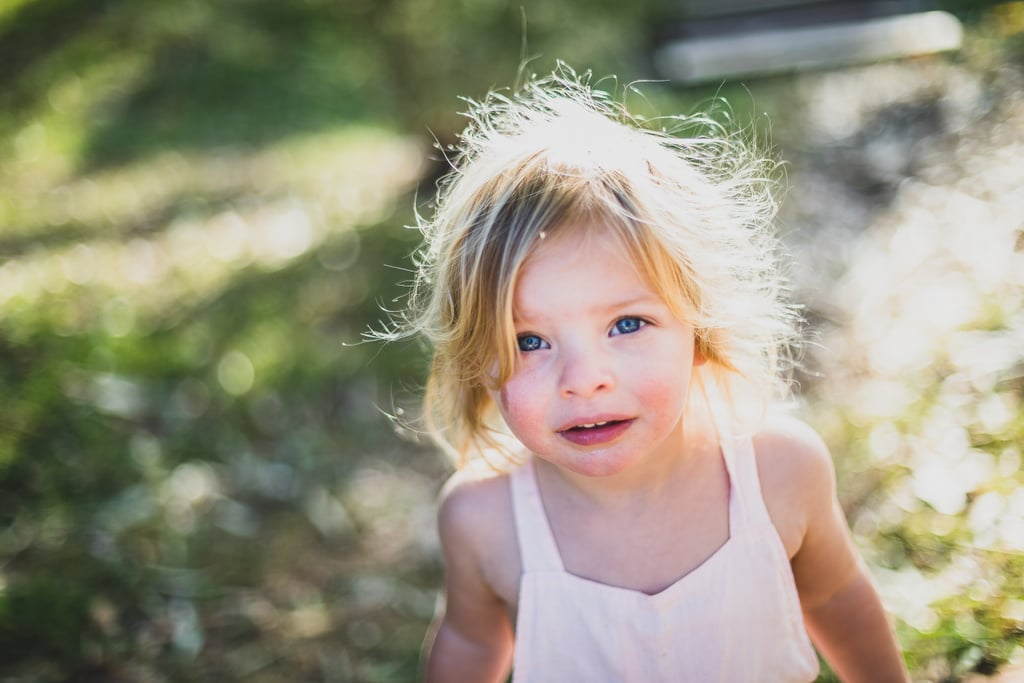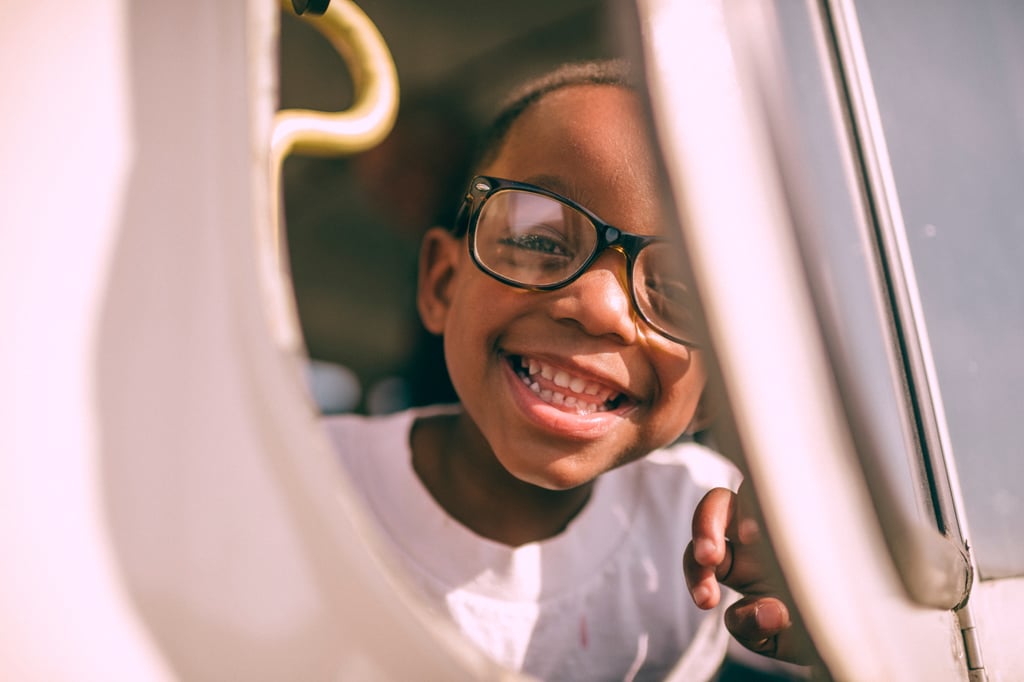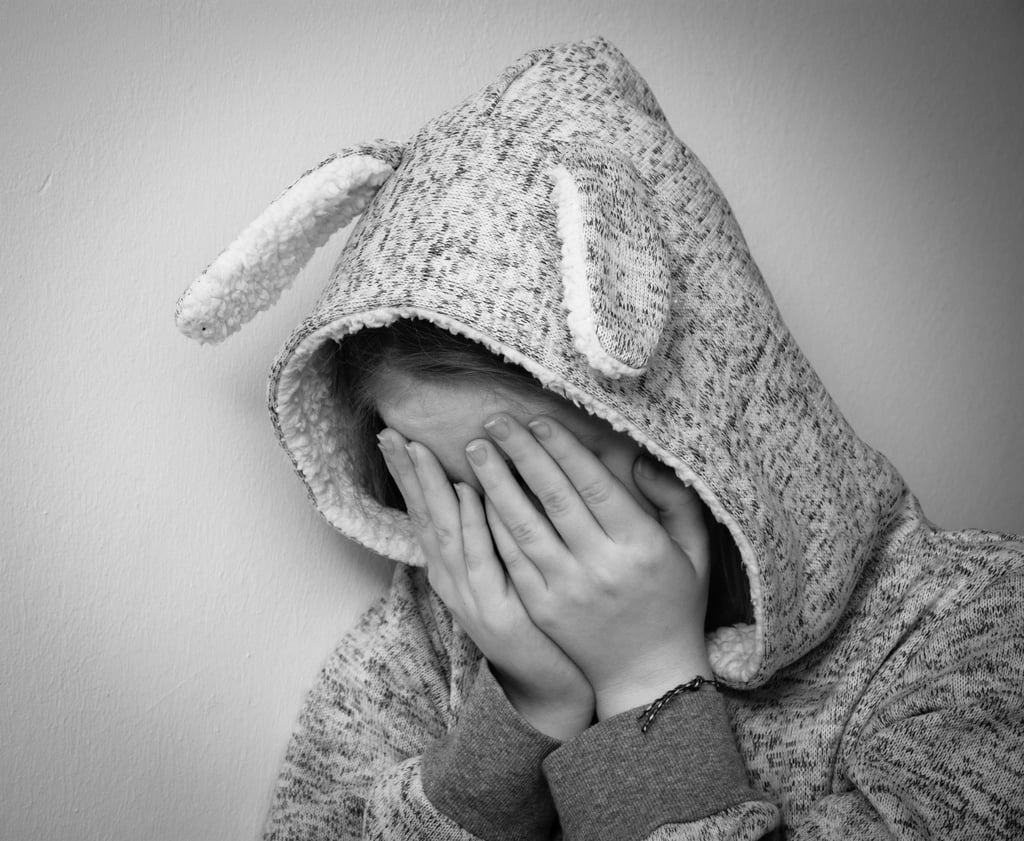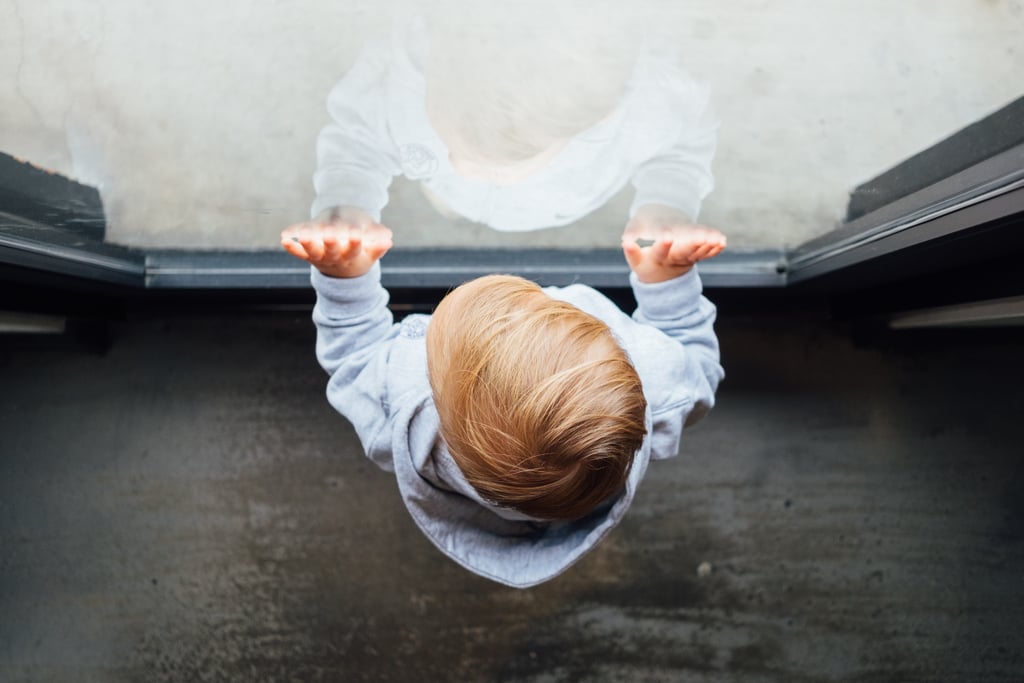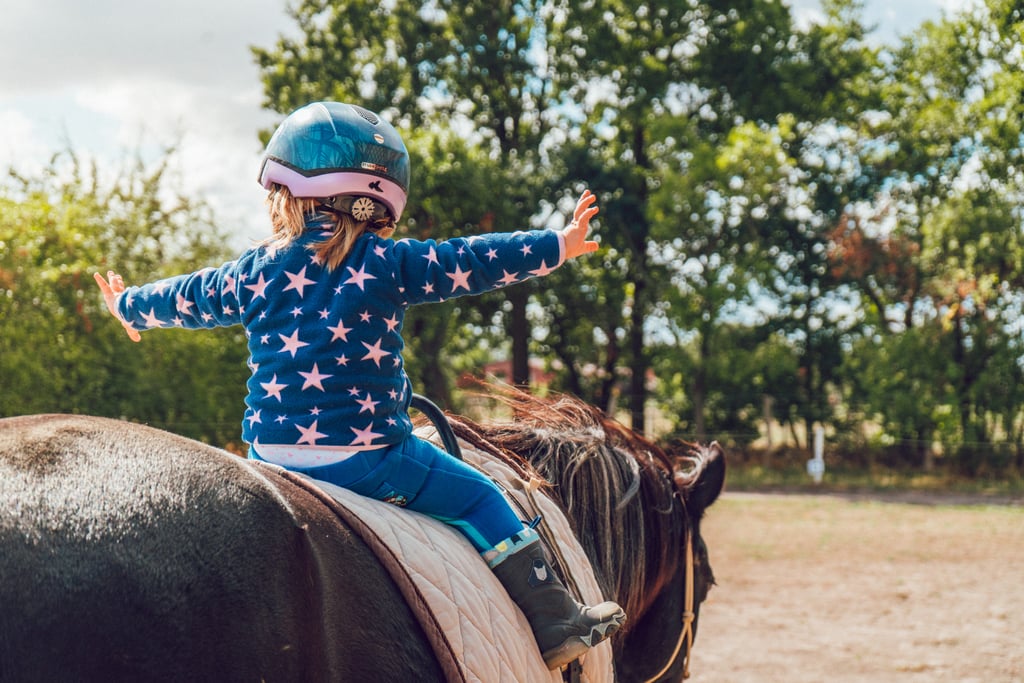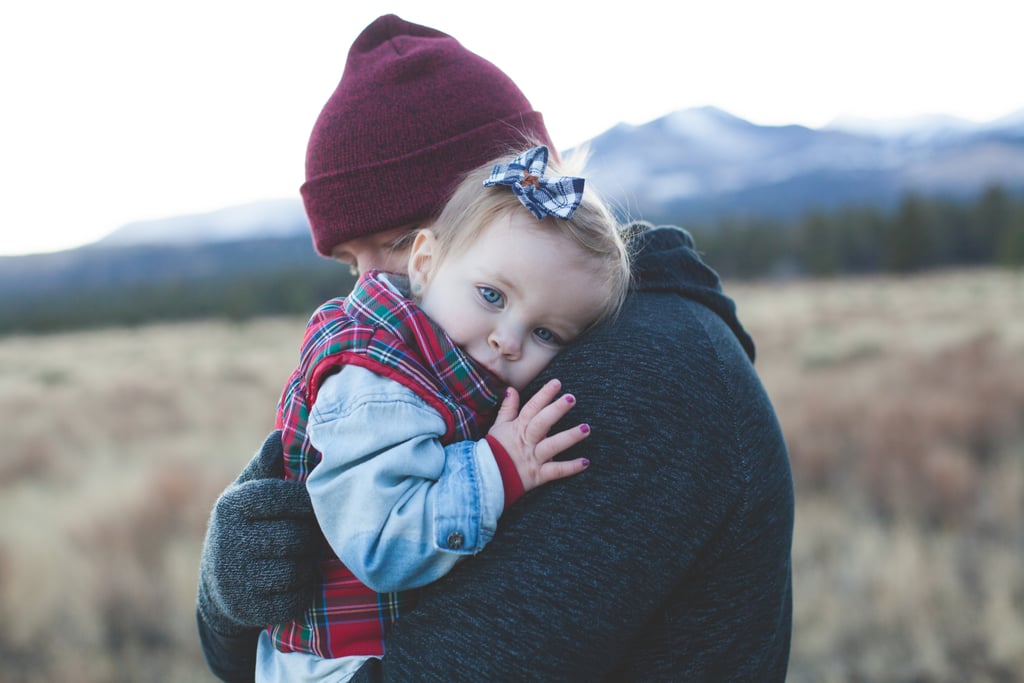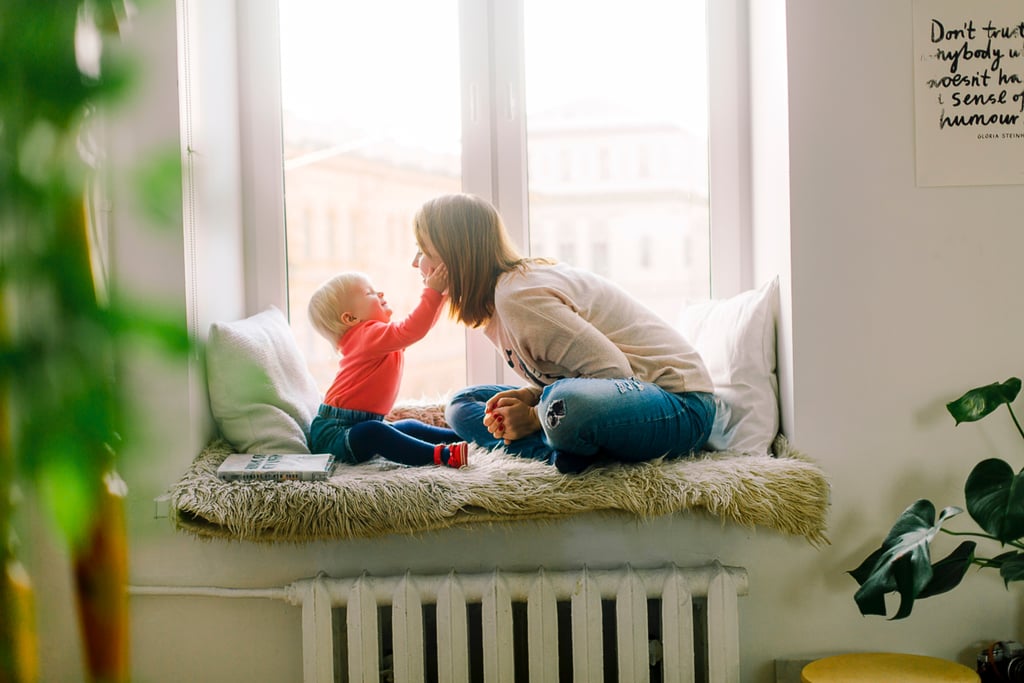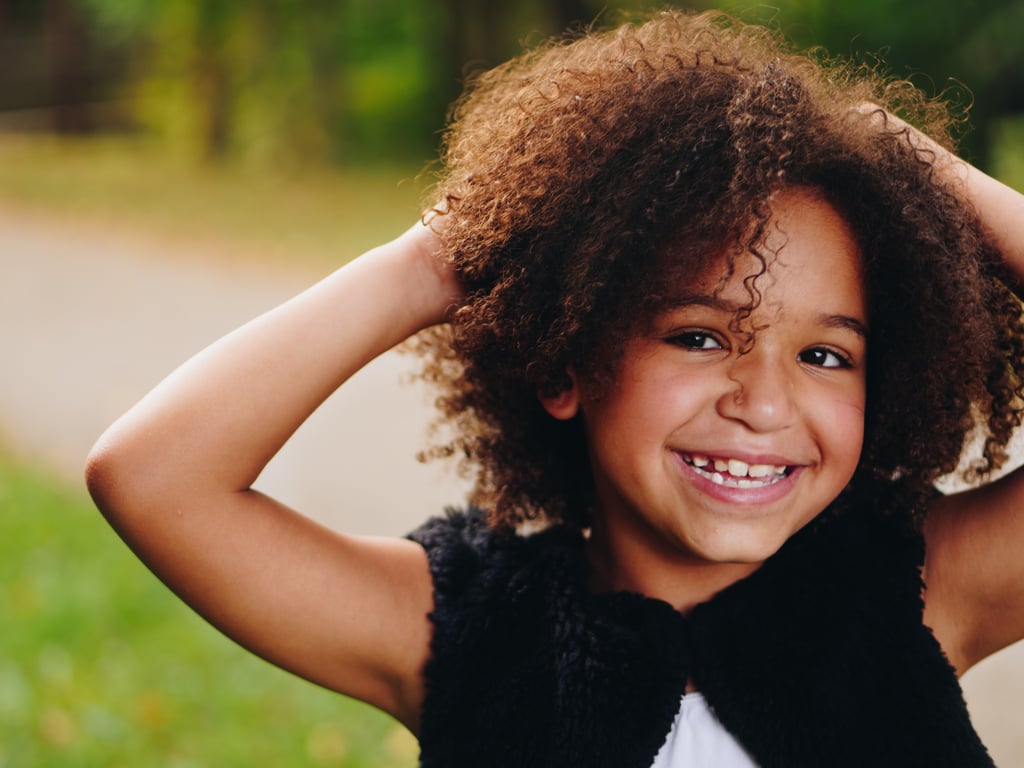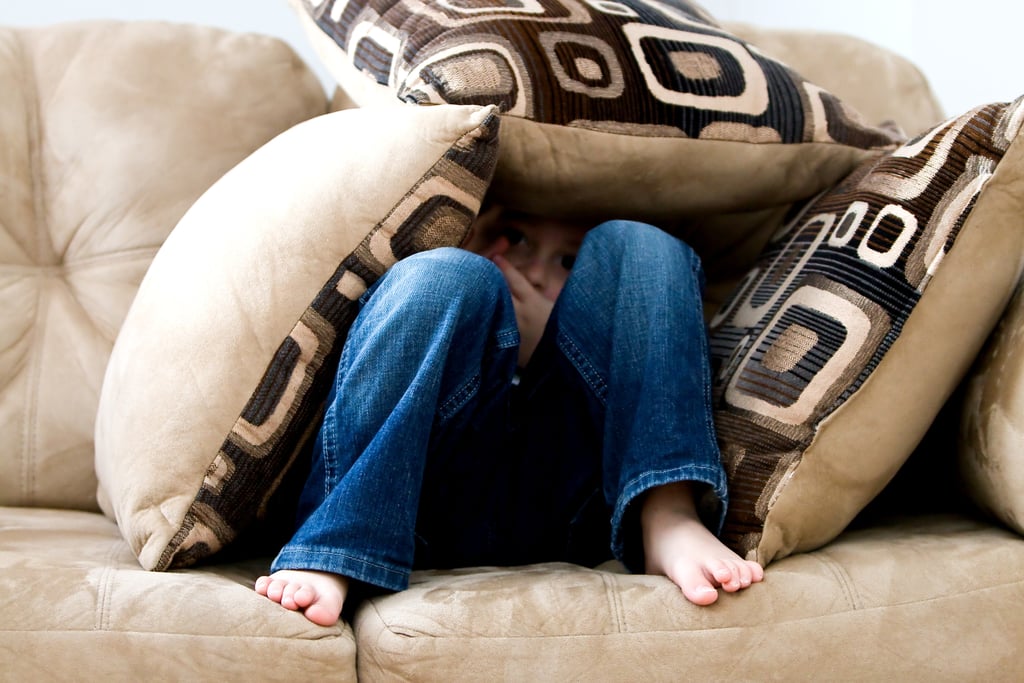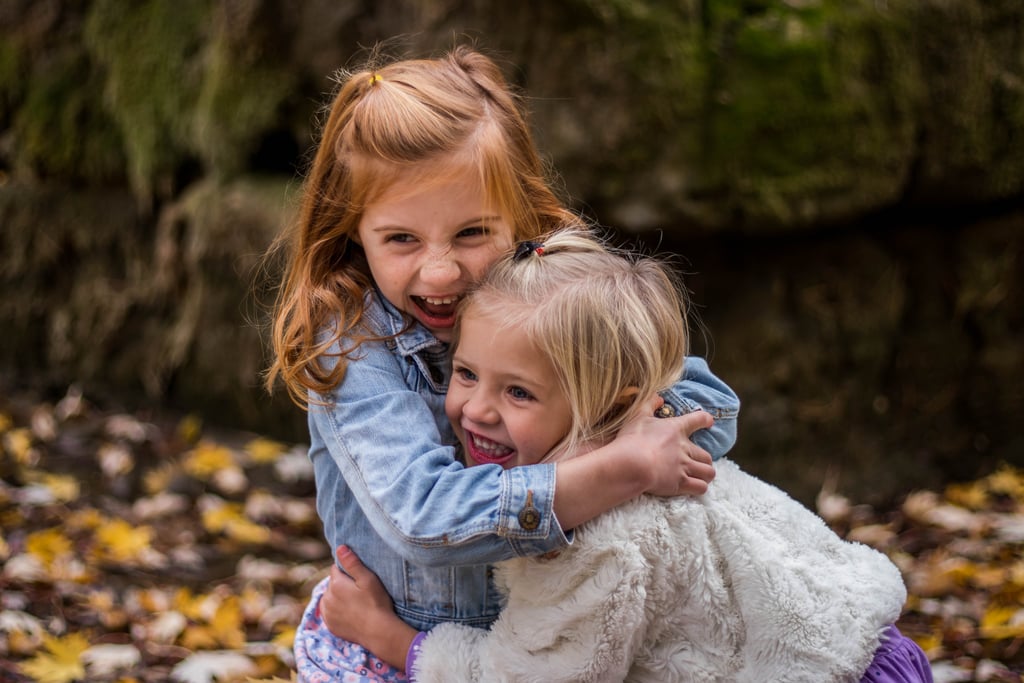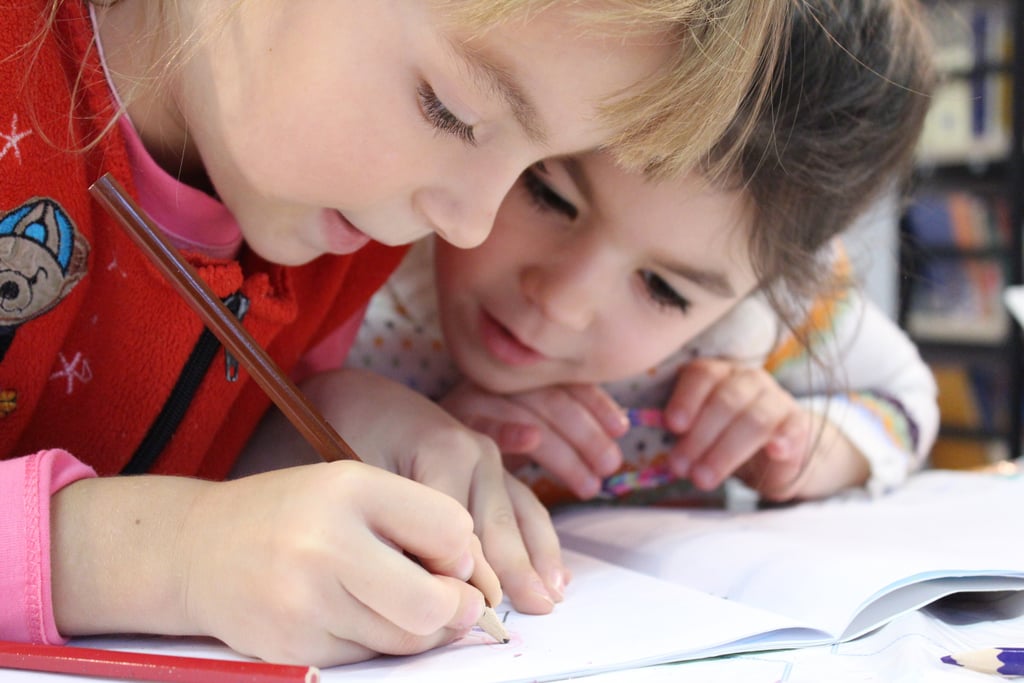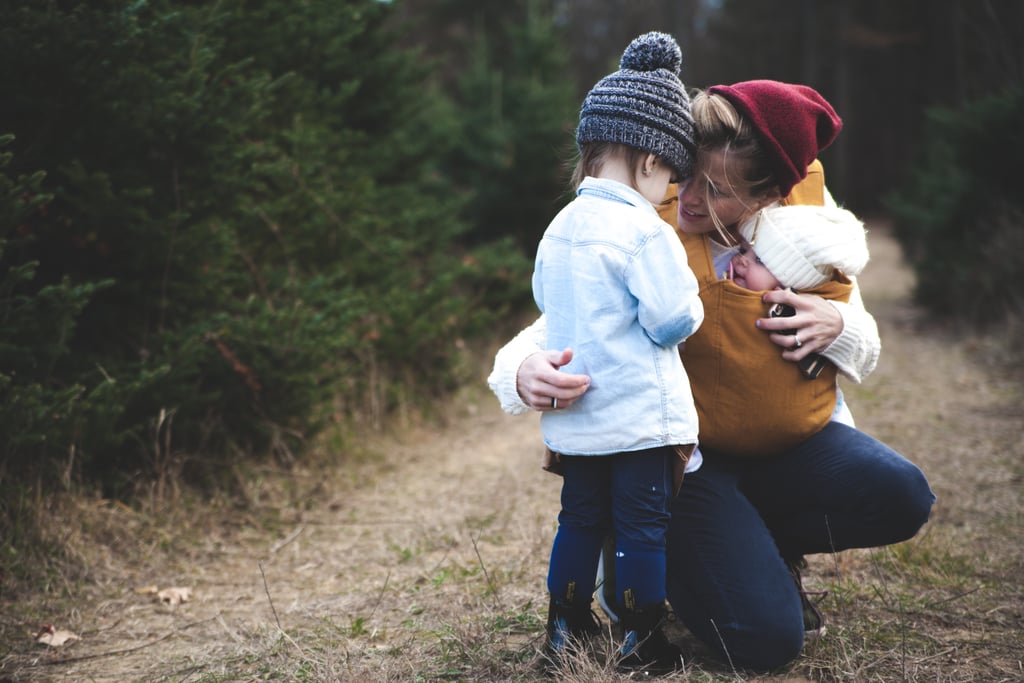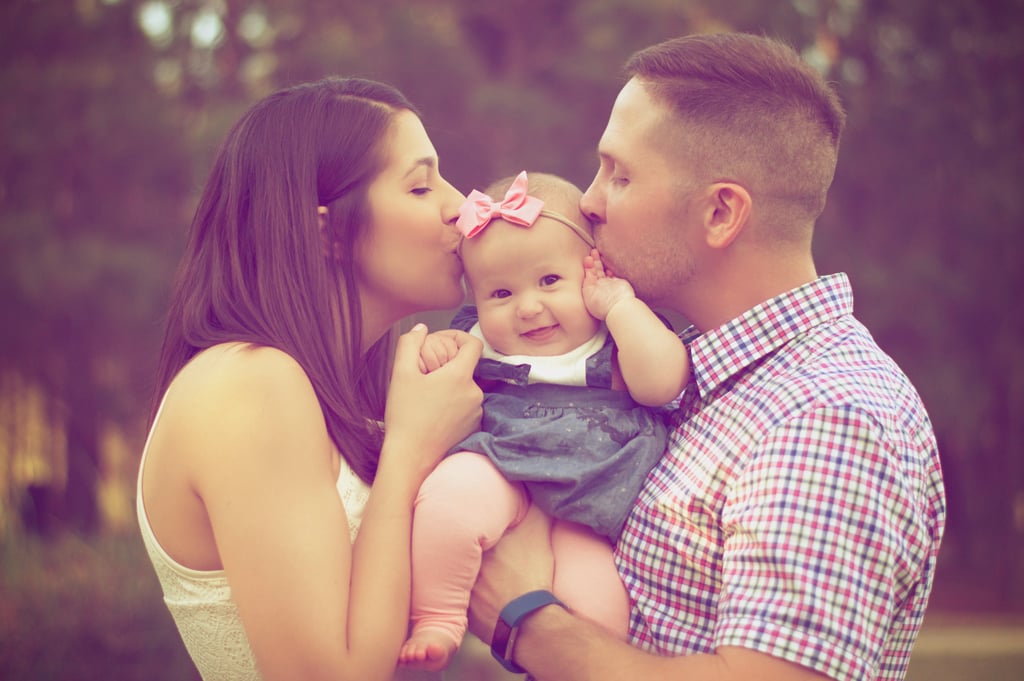When you're little, the world can be a scary place [1]. Where adults see closet doors and fireworks, children can see gateways for monsters and loud, scary noises [2] exploding above them. Helping children deal with these fears [3] can feel daunting, but it doesn't have to. "Not all scary moments are created equal and not all children respond to fear in similar ways," Dr. Allison Lobel, clinical psychologist and director of child and adolescent services for the Wellington Counseling Group [4], told POPSUGAR. "It's important to attend to changes in a child's behaviour with curiosity and cautious concern. Some children may shutdown and display a more paralyzed response to fear or even difficulty separating from a caregiver. Other children may display more overt signs of distress via crying, physically acting out, problems regulating emotions, and difficulty concentrating, to name a few signs."
Seeing your child experience any kind of fear can make any parent feel lost, but it's important for parents to do their research and have knowledge about what to do [5]. "Fears can quickly elicit a sense of helplessness — for both children and parents alike — so having options on how to respond to the fear/anxiety can strengthen much-needed opportunities to experience agency and effectiveness around the situation," explained Dr. Lobel.
For starters, parents should honour their child's fear. "Do take the time to pause what you are doing and listen to your child describe his/her fear. Fear and anxiety can be isolating experiences at times, so connecting with a child through understanding and empathy can help the child feel less alone, and ultimately more able and willing to engage in coping resources [6]," Dr. Lobel said. "Do collaborate with your child on how to address the fear. Talk about strategies and write or draw out plans together. Also, continue to be open to revisit discussions about the fear with your child. One or two conversations does not mean that a child has progressed past feeling anxious or fearful."
Even though something may not be scary to us as adults, it's important that parents treat their child's fear with seriousness. "Avoid minimizing and shaming your child about their fears," she explained. "Don't tell your child that something is silly, ridiculous, or crazy, and avoid telling your child not to be scared. Fear and anxiety are not pleasant emotional experiences, and if your child could talk themselves out of feeling scared, they would." Keep reading for 25 phrases parents can use to help calm their scared child.
"I get scared, too."
Even though they think we're magical adults who never get scared, it's important to let them know that we also have fears. This validates their feelings and lets them know they can open up to us.
"Tell me how you feel."
By asking children to describe how they feel, it can help them rationalize their experiences. This also helps you know exactly what they're going through.
"It's not easy to face your fears."
Asking children to be brave requires them to summon a lot of strength. Let them know you see their power.
"Let me show you how to be brave."
Model for them how to be brave in such a scary world. This tactic doesn't diminish their feelings, but instead gives them example of how to fight back against their fears.
"You can do this."
Remind them that they are more powerful and brave than they think. Children know they're small in the world, and it's our job to make sure that they feel big and empowered.
"Want to hear a joke?"
Getting them to laugh can help separate them from their fears. Laughter really is the best medicine.
"Everything will be OK."
For most things that children are scared of, whether it's a monster under the bed or a thunder clapping in the night, letting them know that everything will be OK is a great start. It's simple and comforting.
"Imagine you're a cloud."
Distract them by getting them to imagine something relaxing, like being on a cloud or sitting at the beach. This will help them not focus on the problem and come down from the adrenaline their body is pushing out thanks to being scared.
"Tell me about something that makes you happy."
Get them to think about things in their life that make them happy. Listing things out loud helps them think about something other than whatever they're scared of.
"Can you pretend that you're slowly blowing up a balloon?"
Taking long and slow deep breaths helps them relax. Pretending to blow up a balloon can also help them feel silly.
"Do you want a hug?"
This simple act can speak volumes. The comforting embrace of a loved one can do so much more than any words.
"Who are your favourite people?"
Another list example, get them to think about all the people they like. Ask them to say what they like about them.
"I'm proud of you."
Kids need to know their loved ones are proud of them, especially when they find themselves in a vulnerable moment.
"Remember, you are brave."
Even the bravest kids can use a reminder every now and again. Let them know that you see their strength.
"What would Black Panther do right now?"
Marvel super heroes (or their favourite animal) can help inspire kids to be brave. They don't need to have super powers to push through fear.
"Here's a magic spell to make everything better."
A little pretend can be helpful. Like the "monster spray" to ward off monsters under the bed, children have the power of their imaginations to make everything better.
"What can I do to help you feel safe?"
Ask them directly what they need from you. Maybe they just need a hug or for you to remove the thing that's scaring them, but get them to start thinking of how to solve the problem.
"What can you do that will make you feel safe?"
Get them to be part of their own solution. Sometimes they may be able to solve their own problems, which will make them feel powerful.
"Can we sing a favourite song together?"
Like telling a joke, singing songs can be very comforting. It's distracting and helps remind them of a time when they weren't scared.
"It's OK to be scared."
Validate their feelings. Everyone gets scared and they need to know that it's OK to be scared every now and again.
"Let's see if we can make this a little less scary together."
Prompt them to approach what they're fearful of by letting them know you're going to tackle it together. They are not alone.
"Can we think of 10 things that make you happy?"
List things that make them happy to encourage the brain to relax. The memory of happy things will help them focus on something other than what is scaring them.
"What are you looking forward to tomorrow?"
Thinking about the future can be a huge tool when combating fear. Have them think about the fun art project they're working on, or all the friends they get to play with the next day.
"I will protect you."
For the really big scaries, children need to know that parents will do everything they can to protect them, even if it's just from an imaginary monster.
"You are loved."
Love is a powerful emotion. Love releases oxytocin, lowering anxiety and cortisol [7], which gets released when fear sets in.
